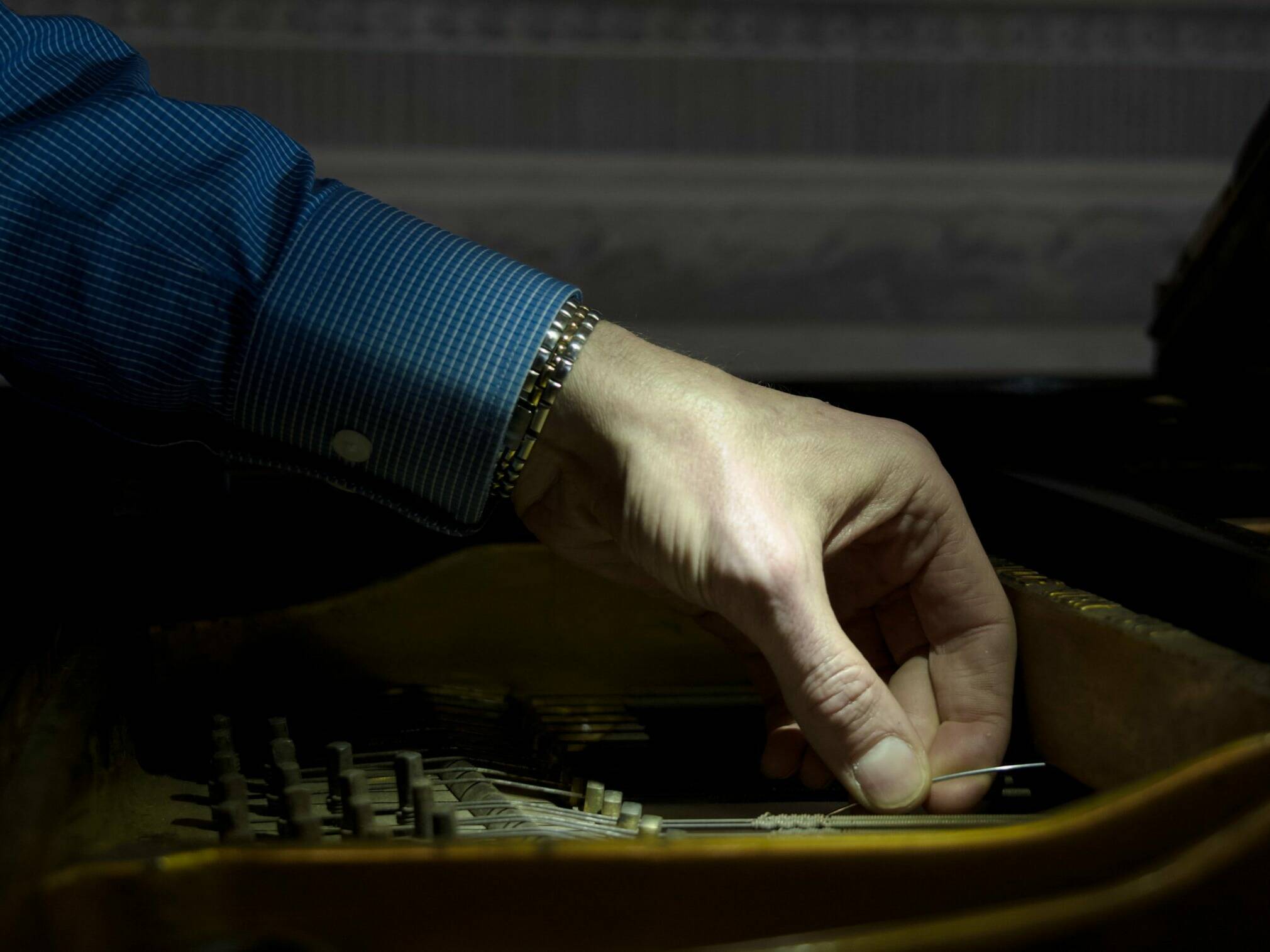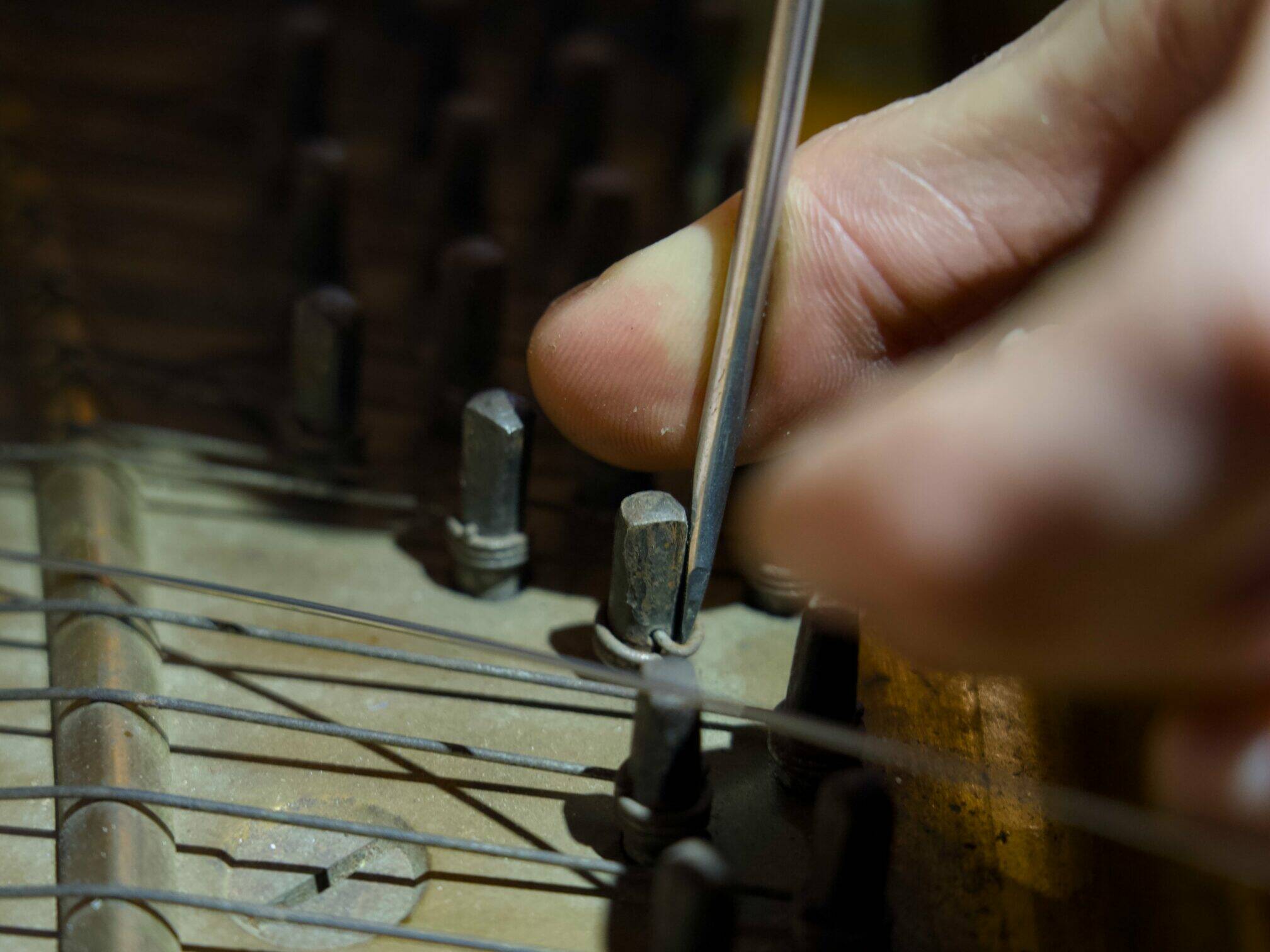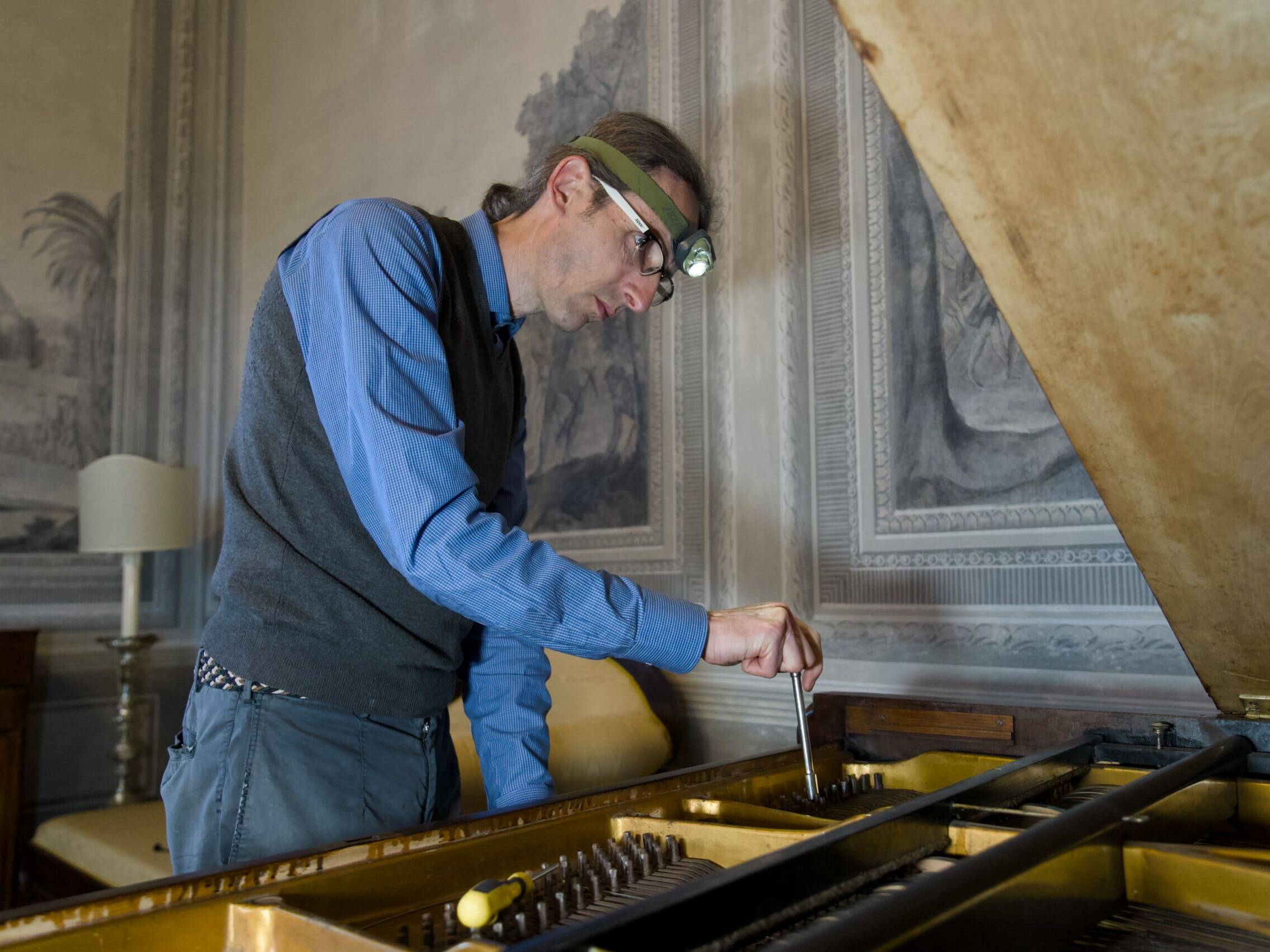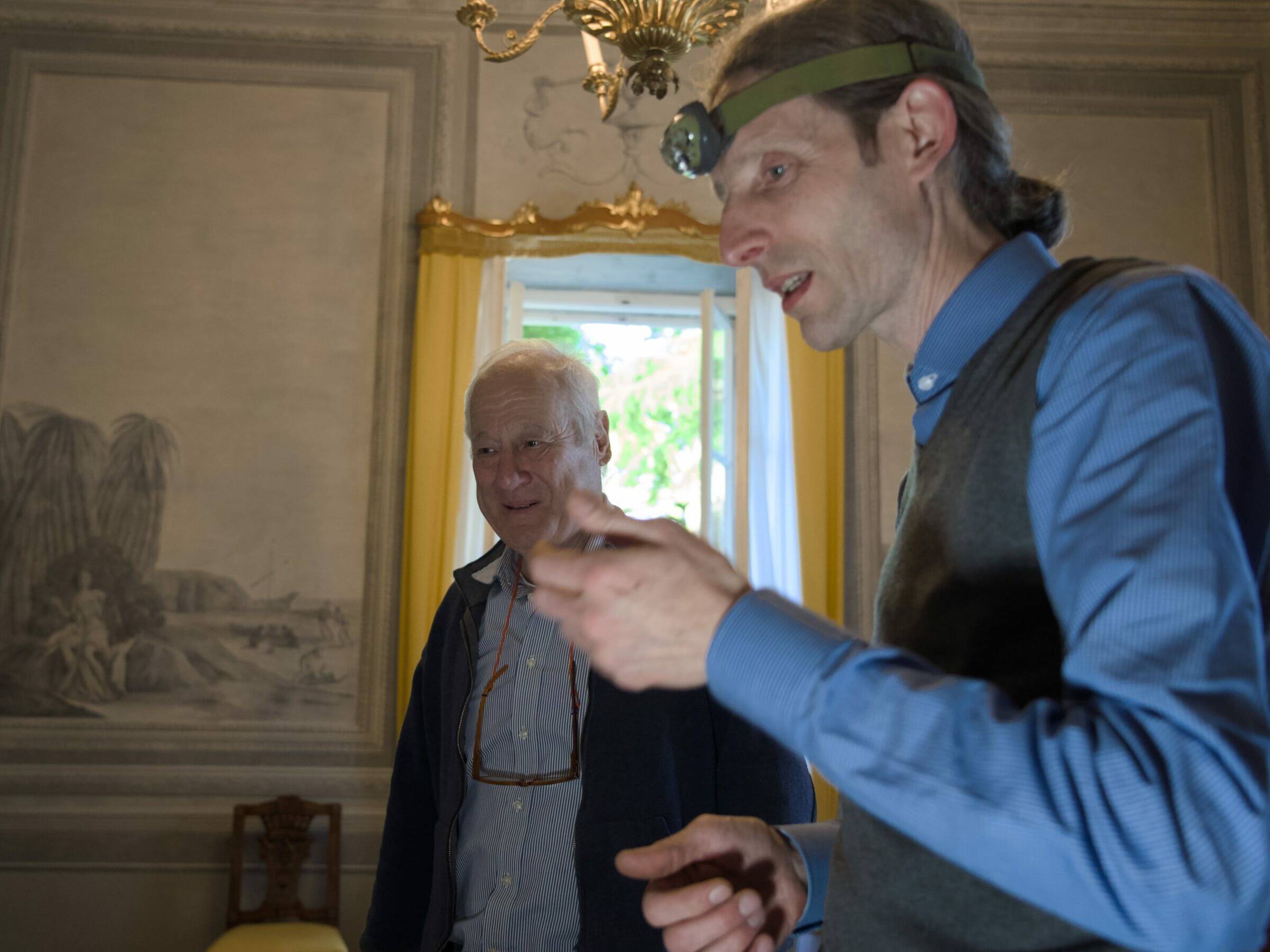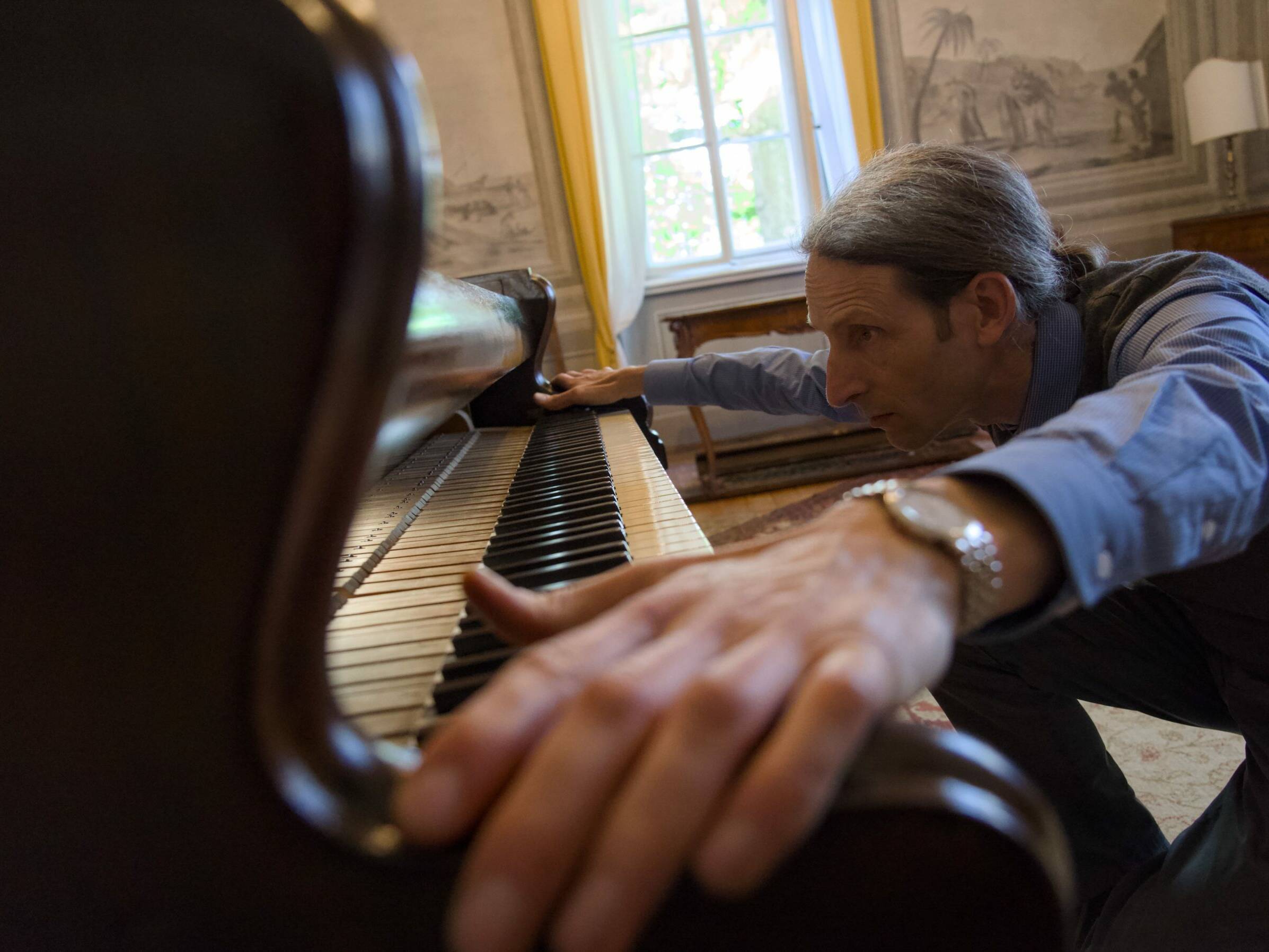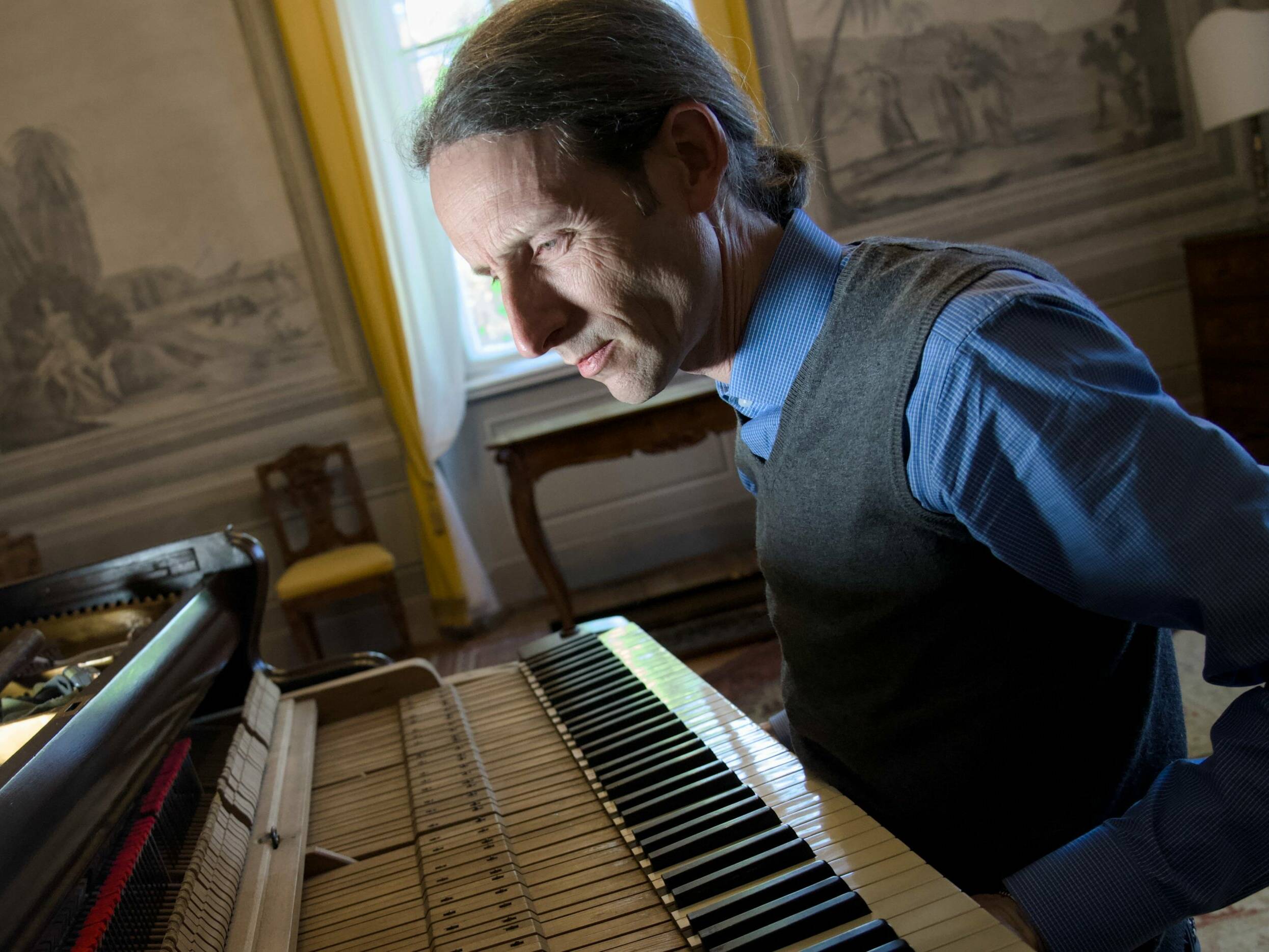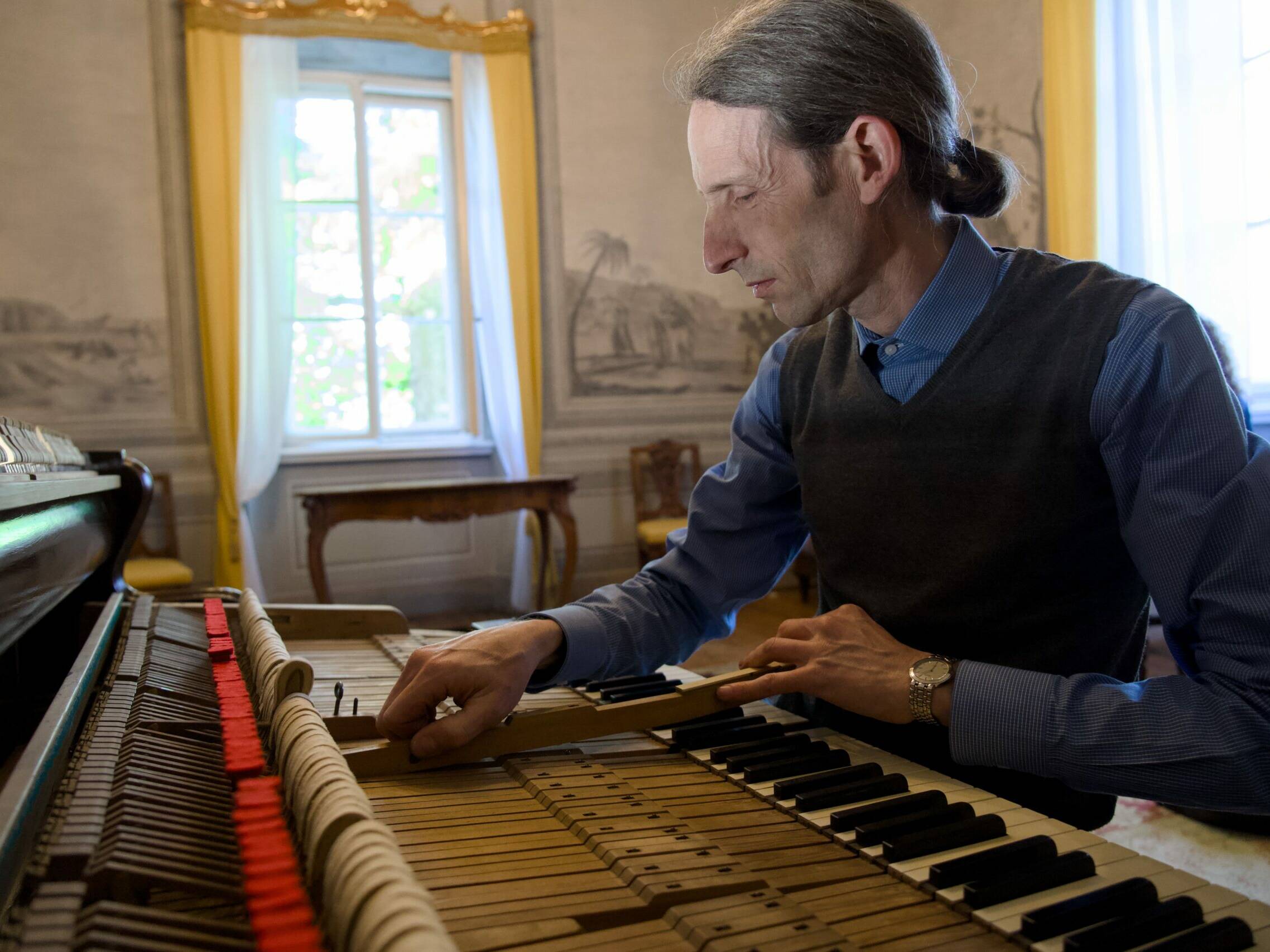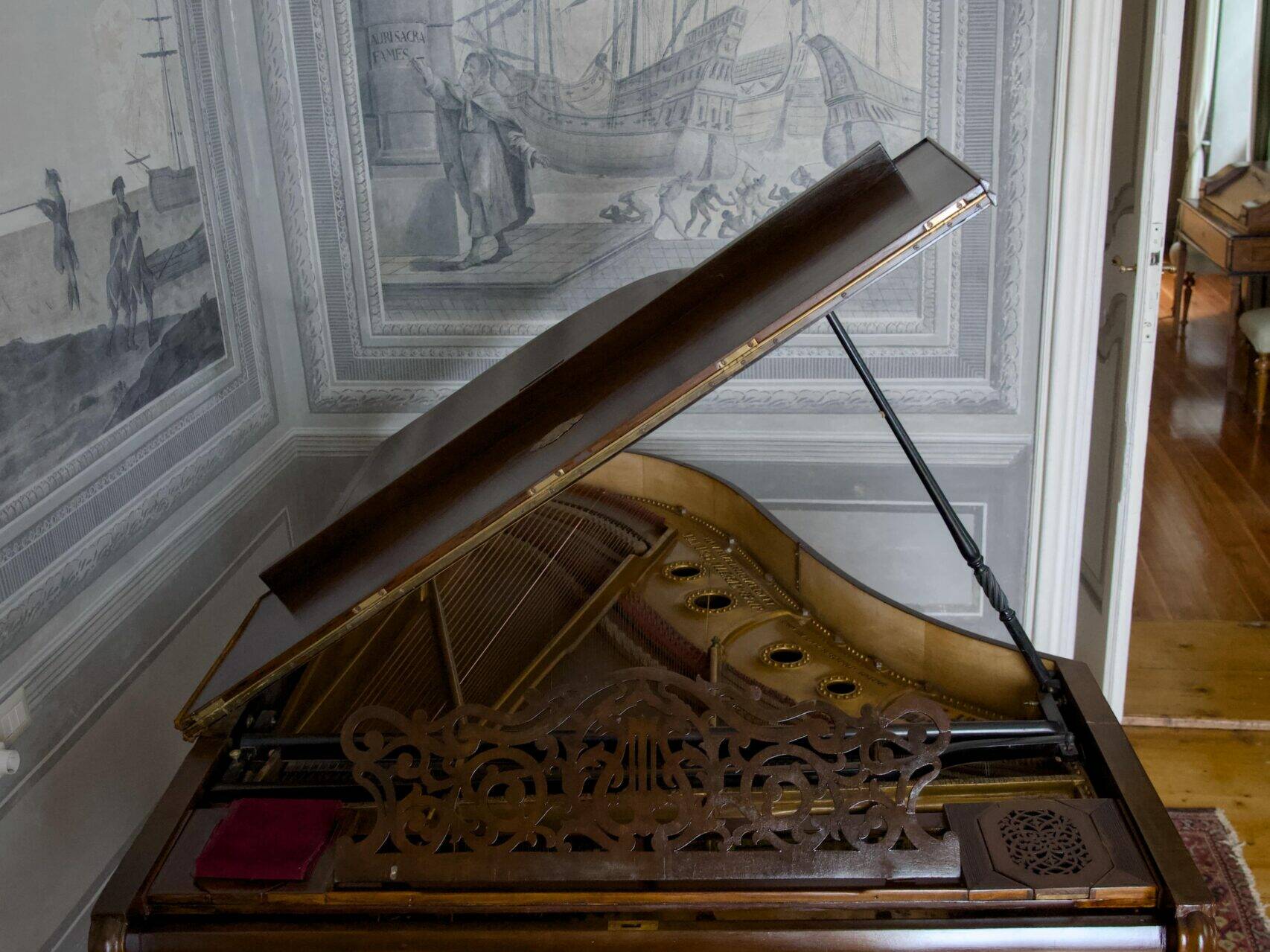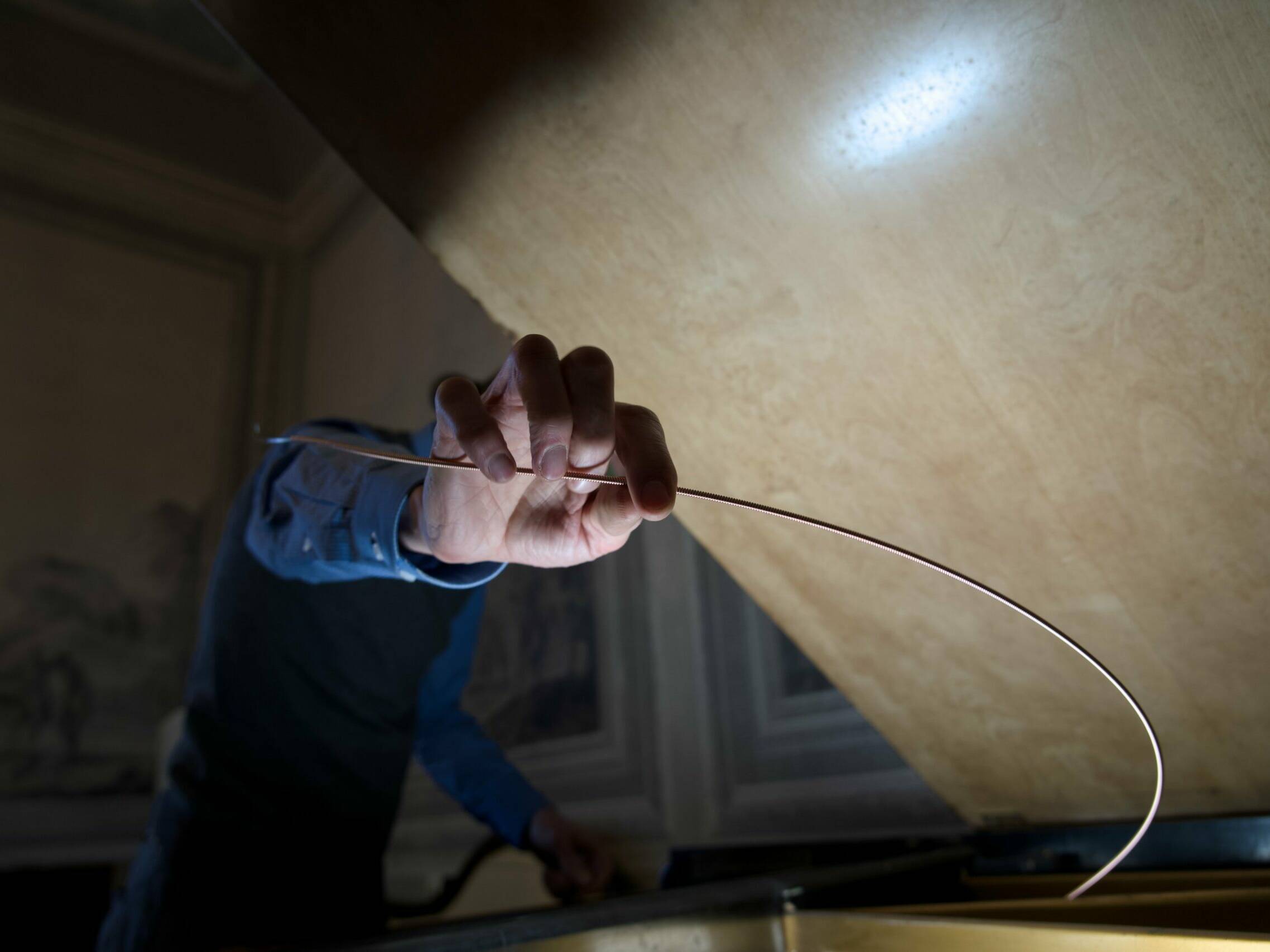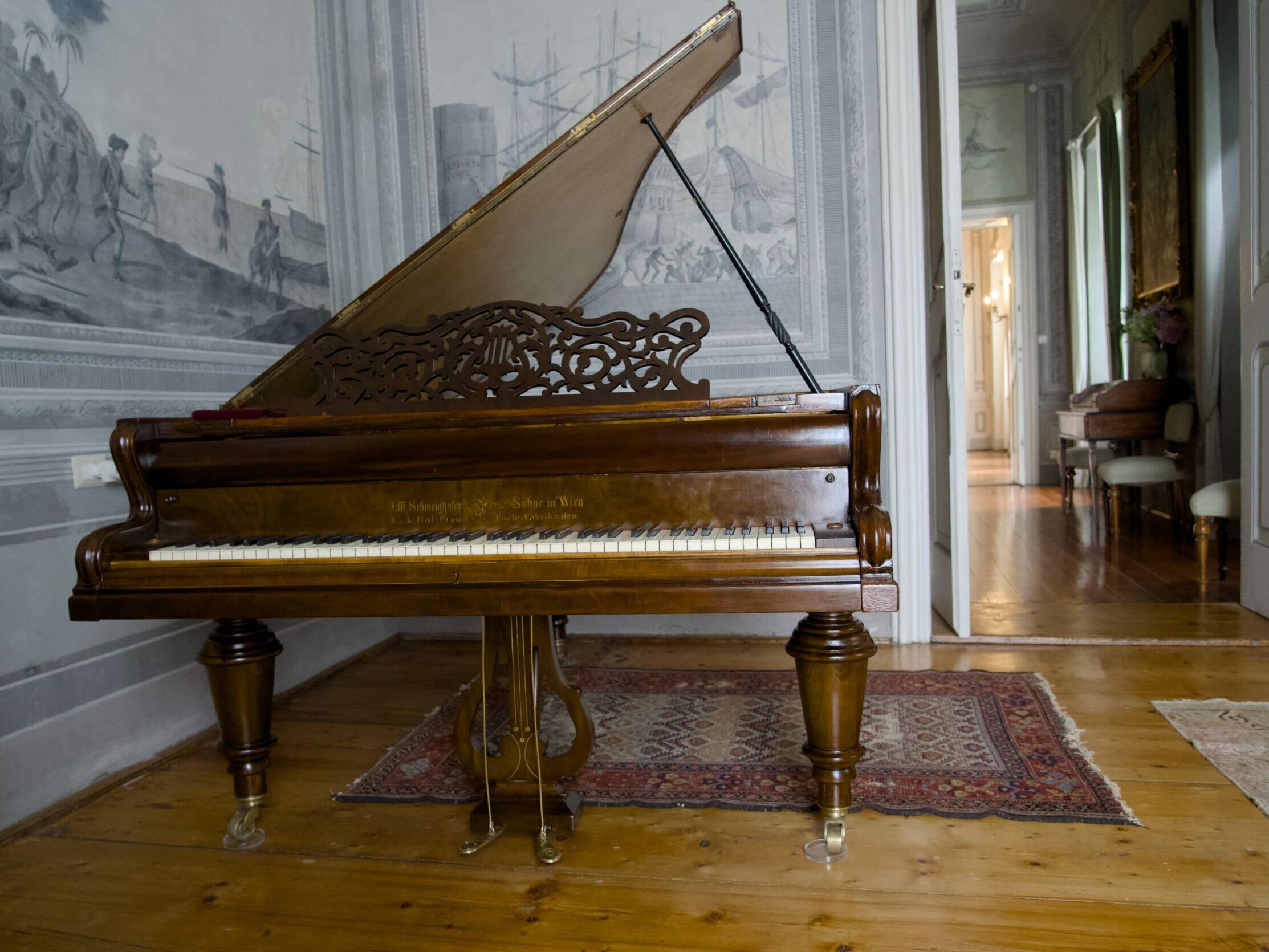It is November 2024 when a beautiful “Schweighofer” grand piano makes its return to the Villa Pace music room. It is not just a precious instrument: it is a fragment of memory that spans generations, a silent guardian of lives, ties and destinies woven through time.
Built in 1895, as attested by the serial number engraved inside the sound box, the piano is the work of the famous Viennese factory founded in 1792 by Michael Schweighofer. Each piano is a work of the highest craftsmanship. Unique instruments, capable of encapsulating an authentic and profound voice. Not surprisingly, such excellence earned the Schweighofer family the honor of being named official piano supplier to the Emperor of Austria.
The piano came to Villa Pace as a gift of affection. It was Rodolfo Pace von Friedensberg who, together with his wife Rosa Lapenna, gave it to their young granddaughter Tea, who was welcomed into the house and raised as a daughter after being orphaned at the age of ten. With the untimely death of the baroness in 1920, when she was only thirty-three years old, the piano remained silent for a long time, until the outbreak of World War II put it in jeopardy.
Count Marino Pace, son of Rodolfo and Rosa, concerned about the instrument’s safety, decided to move it to the home of one of his trusted collaborators, Giuseppe Tomasin, who kept it in his own residence a few hundred meters from the Villa. Eligio, Giuseppe’s son, saw it and was enchanted by its beauty and majesty. He was just a little boy, but in that instrument he saw reflected the image of himself projected into the future. Count Marino, sensing that young man’s extraordinary passion for music, made a gesture of rare generosity. At the end of the conflict, when it would have been natural to return the piano to its original location, he decided instead to give it to Giuseppe, with the only condition that he would allow his son Eligio to study music and cultivate that strong vocation. And so it happened: Eligio Tomasin studied with dedication, became an esteemed musician, and Baroness Tea’s piano remained at his side, witness to an entire life devoted to the art of sounds.
A few years after Maestro Eligio’s death, thanks to a series of circumstances that seem artfully designed by fate, the two families find themselves unaware of each other’s history. And, in November 2024, Eligio’s wife Fiorinda Gallas and their daughters Federica and Marzia decide to return the piano, entrusting it to the custody and care of Giacomo de Pace, the last heir of Count Marino, and his wife Teresa Perusini. The piano, marked by the passage of time and natural wear and tear, had lost stability, and the internal mechanics were in need of experienced and patient hands. And so, if responsibility also means caring, Giacomo and Teresa interpreted this task in the noblest way, taking charge of its restoration.
Roberto Monis and Marina Rodaro Litvin are involved in the restoration of the cabinet to stabilize the structure and touch up the cartouche, without altering the historical identity of the piano. Their work is precise, knowledgeable and respectful.
But it is in the restoration of the mechanics that the piano really comes alive again. In charge is Marco Grassi, a pianist and restorer whose work combines technical knowledge and deep empathy for the instrument. Each hammer is inspected, some strings replaced, felts renewed, friction points corrected. It is patient work, made up of listening and small adjustments, culminating in the moment when the instrument starts singing again. The voice that emerges is warm, full, nuanced, and seems to encapsulate the memory of all the hands that have caressed it over time.
Today the piano towers in all its glory in the music room of Villa Pace. It is a living presence in which the lives of Tea, Marino, Eligio and their descendants are intertwined. It is the tangible embodiment of the power of a gift capable of spanning generations, changing destinies and igniting vocations. Each note that is released in the immensity of the sound bears witness to a story that has never stopped flowing through time. And as one listens to it resonate in the rooms that first welcomed it, time seems to fold in on itself: past and present touching, again, and in an eternal return.
Listen to the story of Eligio Tomasin
